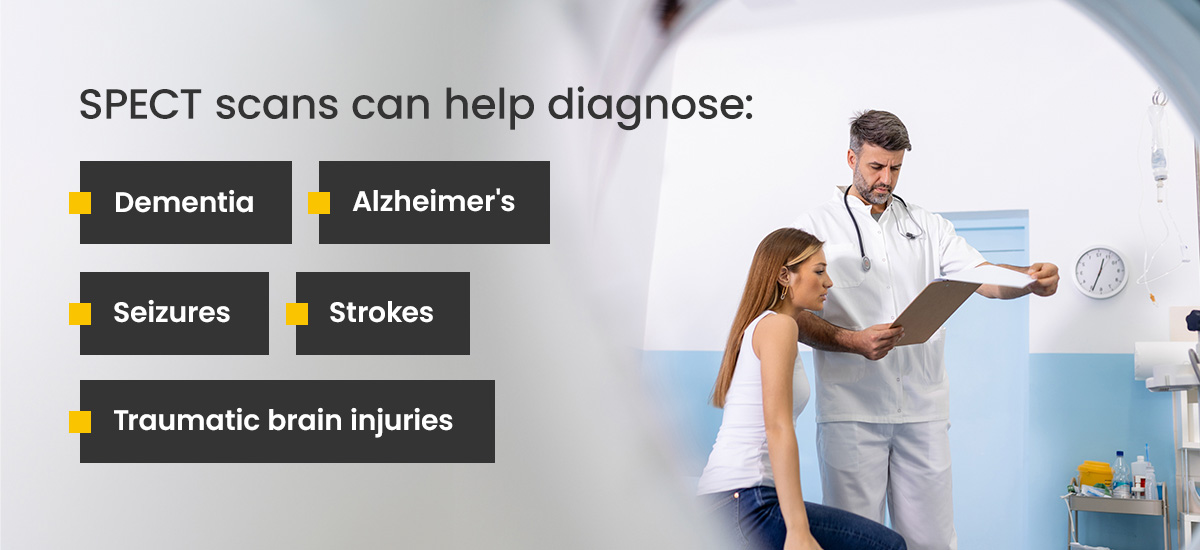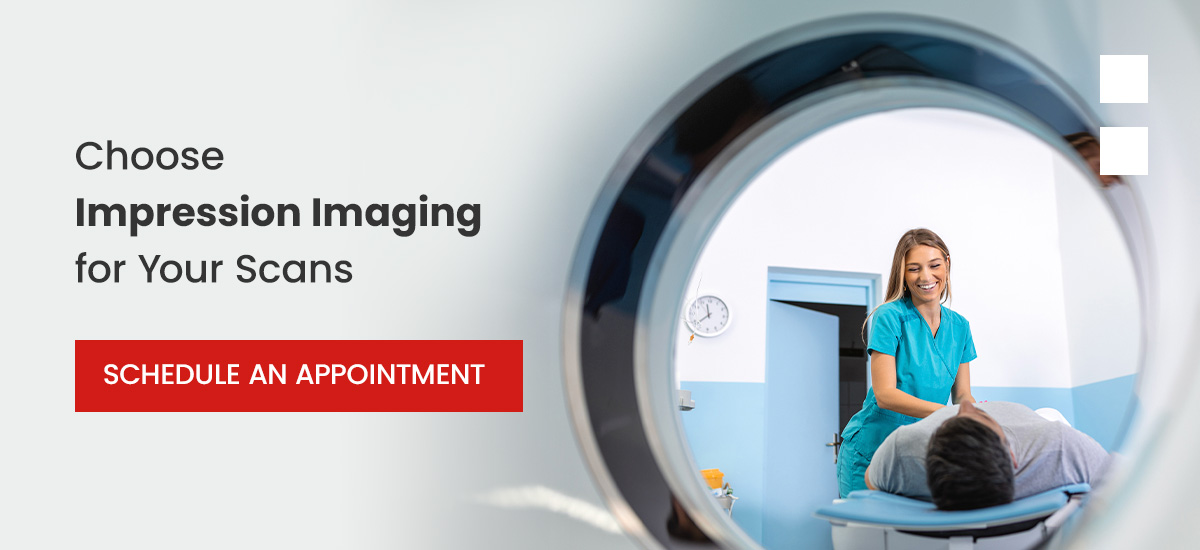
Health is complex — dozens of factors can go into a diagnosis. To help understand how the human body works internally, medical professionals use tools like single-photon emission computed tomography (SPECT) scans. These scans can give professionals insight into an individual’s blood, brain tissue, organs and bones, helping them spot cancer, neurological disorders and more.
Recent research has begun to show how neurological imaging can help point out symptoms related to some mental health conditions, like low brain blood flow. If you’re wondering what a SPECT brain scan is for mental health and physical conditions, we have the information you need. Understanding your medical care options helps you make informed decisions about your care so you can work with your physician to get the best treatment.
What Is a SPECT Brain Scan?
SPECT scans are medical imaging tests that show you how blood flows to your brain’s tissues and brain tissue functionality. Having a 3D map of brain blood flow activity lets health care professionals identify brain abnormalities and diagnose conditions like strokes, clots, seizures or psychiatric disorders. Blood powers your essential body functions — poor blood flow to an area can reveal problems with its function, letting medical professionals understand what might be wrong.
These scans can also help assess brain activity, making them useful in some neurological diagnoses. SPECT heart and bone scans are useful for finding bone cancer, coronary artery disease and bone fractures, along with other conditions.
Are SPECT Scans Legitimate?
While SPECT scans are not currently used to diagnose mental health conditions, they can be helpful as a support tool for developing a comprehensive psychological analysis. Combining SPECT scans with other evaluations can allow health care professionals to identify issues with your brain’s tissues, blood flow and even bones. When used correctly, SPECT scans are helpful diagnostic tools.
Although SPECT scans are a legitimate diagnostic tool, your results need interpreting by a qualified professional to ensure you’re getting accurate results. Make sure to get a SPECT scan from a reputable professional and talk to them about your results if you need further clarification.
What Can a SPECT Scan Diagnose?

SPECT scans are extremely helpful tools. Understanding what a SPECT scan can help diagnose lets you understand your treatment options and find answers to your current health conditions. SPECT scans can help diagnose:
- Dementia
- Alzheimer’s Disease
- Seizures
- Strokes
- Traumatic brain injuries
SPECT scans are great for diagnosing dementia and other neurological disorders like the ones above because neurological disorders damage the nervous system or lead to malfunctions. Dementia, for example, is often associated with changes in the brain’s metabolic activity and blood flow. During a SPECT scan, the health care team injects a radioactive tracer into the patient, which travels through the blood, showing them areas of decreased or increased blood flow.
In dementia cases, health care professionals can spot these metabolism and blood flow patterns in the brain. These patterns are associated with different dementia types and severities, helping the doctors to make a diagnosis. Medical professionals can use medical history, cognitive tests, clinical evaluations and SPECT scan results to diagnose patients. SPECT scans on their own will not show the full story of a patient’s condition.
Can SPECT Scans Diagnose Mental Illness?
The American Psychiatric Association does not currently recognize SPECT scans as a tool for diagnosing mental illness. However, SPECT scans’ usefulness in mapping blood and brain activity has shown signs of becoming helpful tools for identifying mental health issues when used with other forms of psychiatric assessment. One test showed that patients with depression had low brain blood flow, patients with dementia had lower blood flow, and patients with both had the lowest blood flow. It’s important to note that a SPECT scan cannot show depression, but it can show low blood flow in the brain, which might indicate the patient has depression.
Additionally, SPECT scans might be able to help with diagnosing attention-deficient hyperactive disorder, obsessive-compulsive disorder and aggression based on observing brain activity. While SPECT scans alone should not be used to diagnose patients, they could be helpful tools for understanding how brains with these conditions work and how to spot signs of these mental health conditions for further diagnostic testing.
Does Mental Illness Show Up on Brain Scans?
Brain scans like SPECT, magnetic resonance imaging and computed tomography (CT) are helpful for diagnosing certain issues, but neuroimaging alone cannot identify mental illnesses. However, neuroimaging can still be a helpful tool for mental health.
Advances in technology might allow for SPECT scans to help spot schizophrenia and major depressive disorder. Using SPECT scans to show brain activity and blood flow can give health care professionals insight into a patient’s brain and how its activity — in combination with other symptoms — might point to a mental health condition. The brain’s activity and blood flow can provide helpful hints about what the patient is experiencing, allowing professionals to tweak treatment or narrow down a condition.
SPECT Scan Dangers
SPECT scans are relatively safe for patients. However, they do carry some risks, like all medical procedures. Make sure to listen to your doctor and take these risks into consideration if you are getting a SPECT scan:
- Ionizing radiation: SPECT scans will expose you to small amounts of ionizing radiation. While it’s a relatively low amount, pregnant patients should inform professionals before their scan, as radiation could affect their pregnancy.
- Radioactive tracer substance: During the SPECT scan, patients get radioactive tracer substance injections, which produce gamma rays. Health care professionals carefully control the amount of substance used, so your risk of allergic or adverse reactions is small. However, if you know you have a sensitivity to certain substances, you should let your health care team know so they can provide alternative suggestions.
- Claustrophobia: Patients with anxiety or claustrophobia may have a challenging time during the procedure since they need to sit inside the scanner during the procedure. Talk to your health care team about your concerns to help you manage anxiety and stress during the procedure.
Choose Impression Imaging for Your Scans
Enjoy stress-free, rapid care at Impression Imaging. Our team is committed to providing the highest-quality care for our patients, ensuring their comfort. Our mission revolves around compassionate service — with our state-of-the-art positron emission tomography/CT scanners, we ensure top image quality and accurate results.
We understand the importance of accuracy and speed. Our radiologists will collaborate closely with your doctors, returning reports within 12 to 24 hours. Schedule your appointment with us today for a diagnostic experience that puts your health first!



